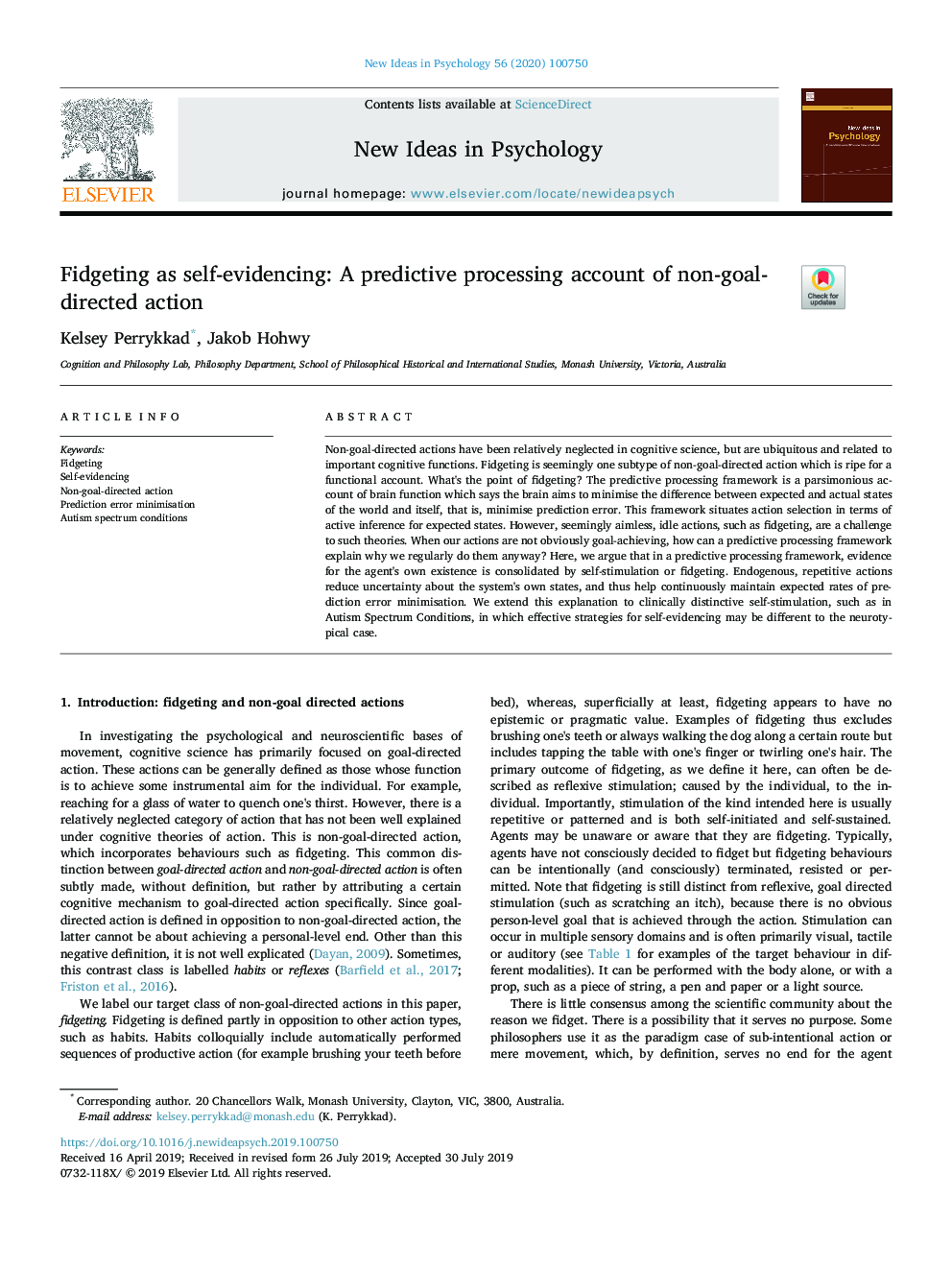| کد مقاله | کد نشریه | سال انتشار | مقاله انگلیسی | نسخه تمام متن |
|---|---|---|---|---|
| 13425022 | 1841931 | 2020 | 8 صفحه PDF | دانلود رایگان |
عنوان انگلیسی مقاله ISI
Fidgeting as self-evidencing: A predictive processing account of non-goal-directed action
دانلود مقاله + سفارش ترجمه
دانلود مقاله ISI انگلیسی
رایگان برای ایرانیان
کلمات کلیدی
موضوعات مرتبط
علوم انسانی و اجتماعی
روانشناسی
روانشناسی رشد و آموزشی
پیش نمایش صفحه اول مقاله

چکیده انگلیسی
Non-goal-directed actions have been relatively neglected in cognitive science, but are ubiquitous and related to important cognitive functions. Fidgeting is seemingly one subtype of non-goal-directed action which is ripe for a functional account. What's the point of fidgeting? The predictive processing framework is a parsimonious account of brain function which says the brain aims to minimise the difference between expected and actual states of the world and itself, that is, minimise prediction error. This framework situates action selection in terms of active inference for expected states. However, seemingly aimless, idle actions, such as fidgeting, are a challenge to such theories. When our actions are not obviously goal-achieving, how can a predictive processing framework explain why we regularly do them anyway? Here, we argue that in a predictive processing framework, evidence for the agent's own existence is consolidated by self-stimulation or fidgeting. Endogenous, repetitive actions reduce uncertainty about the system's own states, and thus help continuously maintain expected rates of prediction error minimisation. We extend this explanation to clinically distinctive self-stimulation, such as in Autism Spectrum Conditions, in which effective strategies for self-evidencing may be different to the neurotypical case.
ناشر
Database: Elsevier - ScienceDirect (ساینس دایرکت)
Journal: New Ideas in Psychology - Volume 56, January 2020, 100750
Journal: New Ideas in Psychology - Volume 56, January 2020, 100750
نویسندگان
Kelsey Perrykkad, Jakob Hohwy,